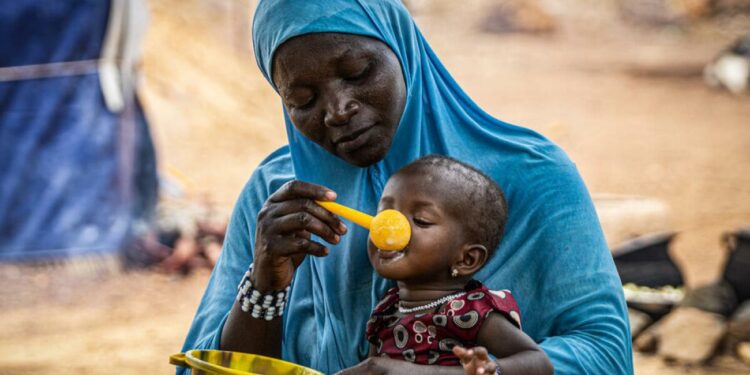Despite ongoing efforts to address food security issues in Nigeria, inadequate funding in the agricultural sector continues to exacerbate the problem, according to experts. The country’s rural farmers, numbering over 200 million, grapple with insufficient resources, utilizing crude equipment and outdated farming practices, resulting in a labor-intensive process that adversely impacts output.
Daniel, a prominent agricultural expert, highlighted the pressing challenges faced by farmers, emphasizing the prevalent use of outdated farming tools due to inadequate funding. This reliance on rudimentary equipment contributes to a low substitution for labor, hindering productivity and exacerbating the already precarious state of food security.
One of the critical issues underscored by Daniel is the limited access to quality seeds. Rural farmers often resort to using the same seeds for extended periods, leading to a decline in quality and overall agricultural productivity. Additionally, the pervasive issue of insecurity, affecting various facets of the economy, has further compounded the challenges faced by farmers.
Daniel stressed the urgent need for the government to strengthen the connection between farmers and markets. This includes facilitating access to off-takers who can purchase produce promptly and at fair prices. Enhancing market linkage is seen as a key factor that could incentivize farmers to increase production.
Moreover, Daniel advocated for improved access to adequate and affordable financing for farmers. He emphasized that financial support is crucial for enhancing agricultural practices, introducing modern technology, and ultimately boosting overall productivity in the sector.
Despite President Tinubu’s declaration of a state of emergency on food security in July, tangible impacts of the outlined plans are yet to be seen. The prices of staple foods continue to rise, worsening the state of food insecurity in the country.
Alarming projections from the Cadre Harmonise report by the Food and Agriculture Organisation (FAO) of the United Nations indicate that over 26.5 million people, including Internally Displaced Persons (IDPs), in Nigeria are expected to face acute food insecurity between June and August 2024. The report underscores the urgent need for comprehensive and effective measures to address the root causes of food insecurity and ensure the sustainable development of Nigeria’s agricultural sector.









